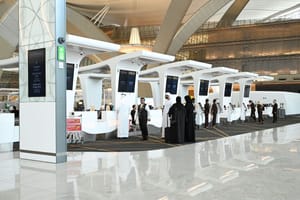Residents can anticipate a six-day break as Eid al Fitr is projected to occur on Wednesday, April 10.
An increasing number of travelers are opting for extended vacations to exotic destinations during the Ramadan and Eid period, as reported by the UAE travel management company musafir.com. The company has noted a notable upswing in travel bookings preceding the holy month of Ramadan.
Raheesh Babu, the COO of the company, stated,
"Approximately 25–28 percent of customer bookings indicate a preference for longer holiday packages. This trend is evident because the Eid Al Fitr holidays this year align with school spring breaks, enabling many families to take extended time off."
Emily Jenkins, Senior Manager at DW Travel, concurred, noting similar patterns in their clientele.
"We've observed a shift towards longer stays when our clients book holidays,"
she remarked.
"We attribute this to the escalating cost of airline tickets, likely influenced by heightened demand and capacity constraints, along with challenges in obtaining Schengen or USA visas."
Furthermore, there is a growing trend among companies to provide flexible working arrangements, enabling employees to work from abroad either at the beginning or end of their annual leave,"
she emphasized.
The anticipated occurrence of Eid al Fitr on Wednesday, April 10, implies that residents can enjoy a six-day break, spanning from Tuesday, April 9 (Ramadan 29), to Saturday, April 13 (Shawwal 3). The sixth day of the holiday coincides with Sunday, which is already a weekend. Notably, many schools in the UAE commence their term breaks by mid-March.
Popular Locations
According to Raheesh, the prevailing trend for extended vacations is predominantly leaning towards European destinations.
"Greece, Switzerland, France, Germany, Italy, and Japan are among the top choices for longer vacations,"
he noted.
"CIS countries, including Georgia, Armenia, Azerbaijan, Kazakhstan, and Kyrgyzstan, remain popular due to their streamlined visa processes, cost-effectiveness, and rich cultural experiences. Uzbekistan is also gaining traction for its accessibility and affordability."
Emily added that other sought-after locations included the Maldives, Sri Lanka, the UK, Switzerland, Saudi Arabia, and Zanzibar.
"Emerging destinations comprise Poland, Kenya, South Korea, and Bali,"
she stated.
"Due to extended waiting times for Schengen or USA visas, there is a growing demand for travel to Asia, driven by more lenient visa regulations. Sri Lanka, Thailand, Japan, Malaysia, Bali, as well as 'visa-free' destinations like Georgia, Kazakhstan, Armenia, and Turkey, are all in high demand. Japan's recent easing of regulations for UAE citizens and residents, allowing online e-visa applications, has contributed to its popularity."
She also highlighted additional trends, stating,
"We've observed an increase in requests for experiential travel across the Middle East and Africa, including safari trips in East Africa, wellness itineraries in Qatar, and multi-stop journeys through Saudi Arabia."
Emily further noted a noteworthy shift in the booking window.
"In previous years, passengers were booking and traveling within a 14-day window; now, we are seeing customers planning 2-4 months in advance due to concerns about pricing and availability,"
she explained.
Traditional Pattern
The surge in passenger traffic during March is not unique to this year, as highlighted by Sudheesh T.P., the General Manager of Deira Travels.
"Traditionally, March has been marked by heavy outbound traffic due to the school breaks during this period,"
he explained.
"The combination of the typically busy season, school vacations, and the Eid break creates a favorable scenario akin to a jackpot for the travel industry. Additionally, many schools in the Indian subcontinent also have breaks around this time, contributing to the significant inbound travel observed during this month."
Sudheesh further noted that the first week of Ramadan sees a notable increase in outbound travel.
"During the month, many hotels and entertainment venues take a break, creating a lean period,"
he said.
"As a result, a considerable number of staff members return home for vacation during the first week, leading to increased travel activity."
News Source: Khaleej Times









